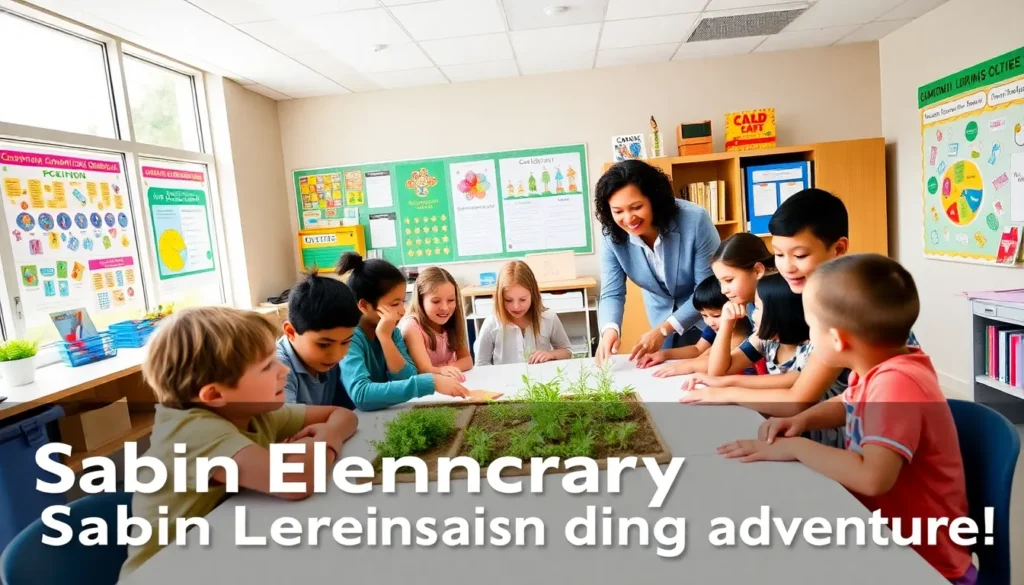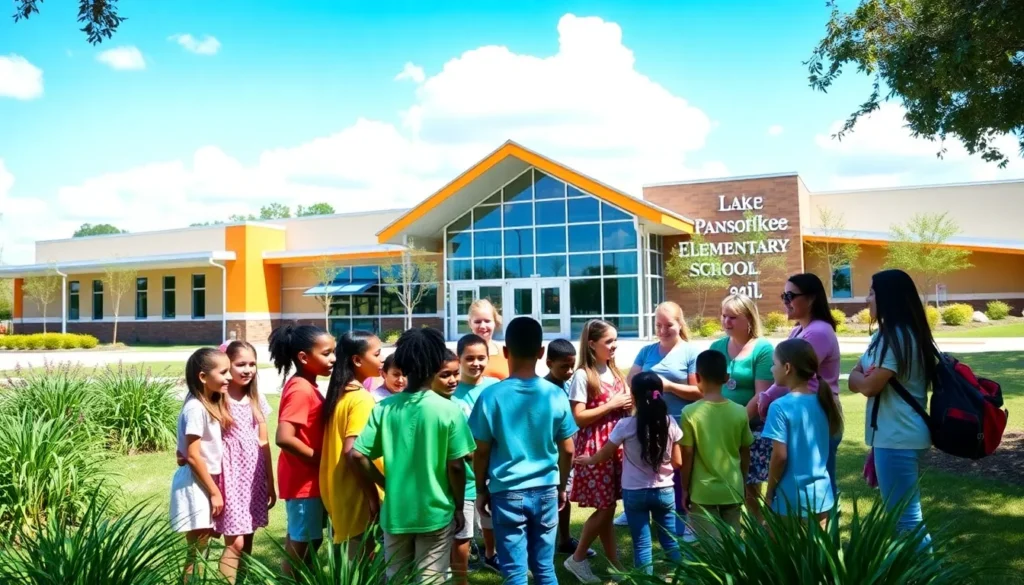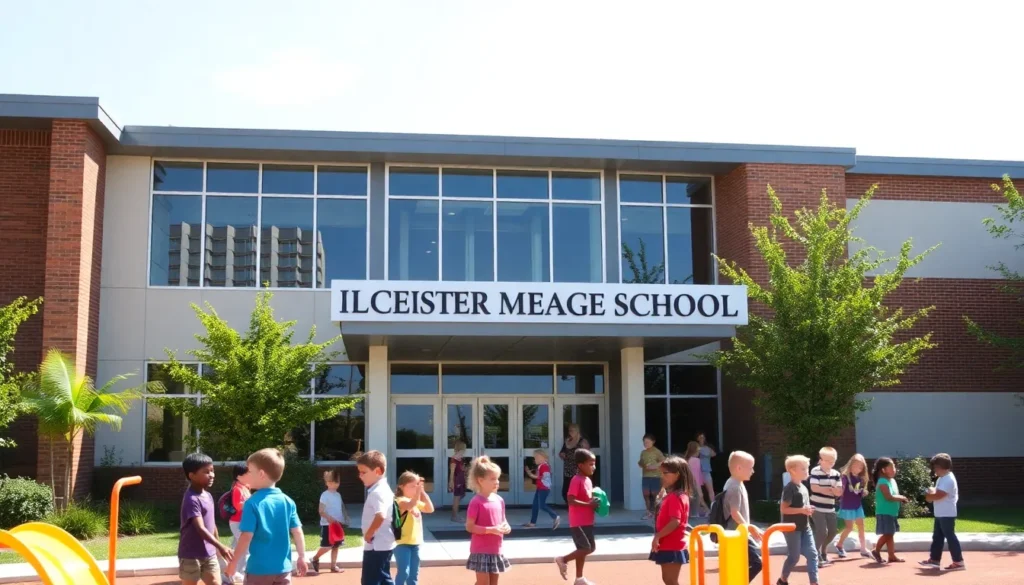As summer rolls in and school doors close, many parents wonder how to keep their kids engaged and learning. Summer learning activities offer a perfect blend of fun and education, ensuring children retain knowledge while enjoying their break. From hands-on projects to outdoor adventures, the possibilities are endless.
Engaging in summer learning not only prevents the dreaded “summer slide” but also sparks curiosity and creativity. Whether it’s through reading challenges, science experiments, or art projects, these activities can transform lazy summer days into opportunities for growth and exploration. With the right approach, summer can become a season of discovery that prepares kids for the upcoming school year.
Table of Contents
ToggleImportance Of Summer Learning Activities
Summer learning activities play a crucial role in maintaining academic skills and promoting lifelong learning. Engaging in structured educational experiences during the summer months reduces the risk of the “summer slide,” which can result in a loss of knowledge and skills over time.
Fostering curiosity and creativity, summer learning activities offer children the opportunity to explore new interests and subjects outside the traditional classroom setting. These activities enable them to pursue passions in reading, science, and the arts, enhancing their critical thinking and problem-solving abilities.
Additionally, summer learning initiatives aid in reinforcing skills acquired during the school year. For example, reading challenges can strengthen literacy skills, while science experiments promote inquiry-based learning. Both contribute significantly to academic preparedness for the upcoming school year.
Social interaction also enhances the value of summer learning. Collaborative projects allow children to work with peers, developing teamwork and communication skills. Through these group activities, they learn to discuss ideas and share perspectives.
Lastly, summer learning activities encourage physical activity and overall well-being. Incorporating outdoor learning experiences not only fosters a connection with nature but also supports health and fitness. This holistic approach balances academic growth with emotional and physical health, providing a well-rounded educational experience.
Types Of Summer Learning Activities


Engaging in diverse summer learning activities can enhance creativity, critical thinking, and teamwork while making the most of the summer months. Below are several types of activities that effectively mix education with fun.
Outdoor Learning Opportunities
Outdoor learning experiences promote exploration and discovery, directly connecting with nature. Activities like nature scavenger hunts encourage observation and critical thinking. Gardening teaches responsibility and biology, giving kids hands-on experiences with plant growth cycles. Visits to local parks or nature reserves enhance knowledge of ecosystems, wildlife, and environmental conservation. Outdoor science experiments, such as water filtration or solar energy projects, provide practical applications of scientific concepts.
Creative Arts And Crafts
Creative arts and crafts foster self-expression while developing fine motor skills. Painting, drawing, and sculpting allow children to explore artistic techniques, boosting their imagination. Craft projects using recycled materials teach sustainability and resourcefulness. Photography exercises encourage kids to see the world from different perspectives, enhancing visual literacy. Collaborative projects, such as murals or community art, promote teamwork and social interaction, strengthening communication skills.
Educational Games And Puzzles
Educational games and puzzles make learning enjoyable while reinforcing academic skills. Board games like Scrabble enhance vocabulary and spelling. Math games facilitate problem-solving and critical thinking in fun contexts. Online platforms offer a variety of interactive games that cover subjects like science and history, making learning engaging. Puzzles and brain teasers stimulate cognitive skills and persistence, encouraging a growth mindset. Combining learning with gameplay allows children to explore knowledge in an immersive way.
Tips For Implementing Summer Learning Activities
Implementing summer learning activities involves careful planning and thoughtful selection of activities. These tips can enhance the effectiveness and enjoyment of summer education.
Planning A Schedule
- Schedule daily or weekly learning blocks to create a routine.
- Establish specific time slots for different activities, ensuring variety and balance.
- Include breaks to prevent burnout and sustain engagement throughout the summer.
- Utilize visual aids, such as charts or calendars, to help children anticipate their learning activities.
- Remind children to plan their own activities, encouraging them to take ownership of their summer learning journey.
Choosing The Right Activities
- Select activities that align with children’s interests to maximize engagement.
- Focus on a mix of educational and creative projects, such as reading challenges and art projects.
- Incorporate collaborative activities to strengthen social interactions and teamwork, like group science experiments or community service projects.
- Choose outdoor activities to promote physical health, such as gardening or nature walks, which blend education with exploration.
- Consider using educational games and puzzles that cater to various subjects, enhancing critical thinking while keeping learning fun.
Benefits Of Summer Learning Activities
Summer learning activities offer numerous advantages that enhance a child’s development. They help maintain academic skills and boost knowledge retention. Engaging in structured learning experiences reduces the likelihood of the “summer slide,” where students lose previously acquired skills. Studies show that children participating in summer learning programs score higher on standardized tests compared to their peers who do not.
Summer learning activities also promote critical thinking and problem-solving abilities. Activities like science experiments and math challenges encourage children to explore concepts logically and creatively, fostering intellectual growth. Creative projects, such as arts and crafts, enhance fine motor skills and self-expression.
In addition, these activities cultivate social skills. Group projects, discussions, and collaborative tasks help children develop teamwork and communication abilities. Building relationships with peers during summer activities offers opportunities for social interaction, which is vital for emotional well-being.
Physical activity plays a crucial role in summer learning as well. Outdoor learning opportunities, such as nature scavenger hunts, promote not only scientific understanding but also overall health. Combining education with movement encourages a balanced lifestyle, contributing to children’s physical and mental well-being.
Furthermore, summer learning experiences instill a love for lifelong learning. Children exposed to enjoyable educational activities may develop a curiosity that extends beyond summer. This passion for learning can impact their future academic pursuits and inspire the acquisition of new skills.
Summer learning activities offer a multifaceted approach to development, fostering academic skills, critical thinking, social interaction, physical health, and a lifelong enthusiasm for learning.









